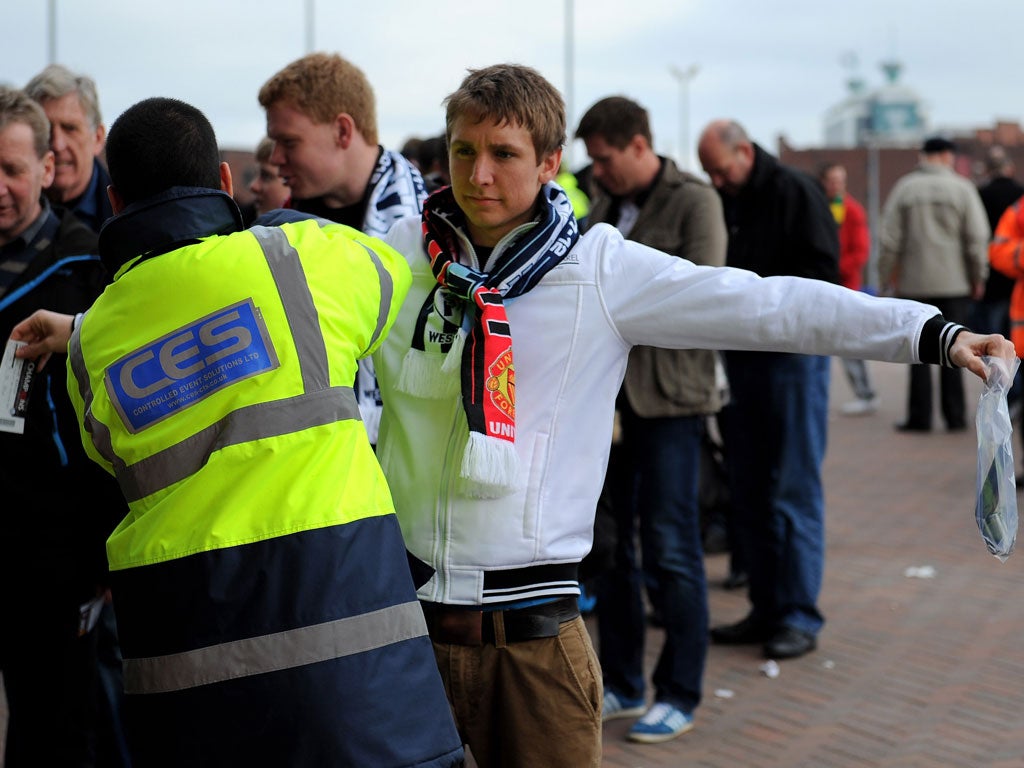Put your camera away: security guards offer glimpse of Olympic enforcers
'Overzealous' workers go beyond the law in preventing photography of public sites

Poorly trained and overzealous security guards are abusing the law by clamping down on public photography in the run-up to this summer's Olympics.
Amateur and professional photographers say they are being routinely harangued by aggressive guards near Olympic venues, who use the upcoming Games as an excuse to restrict public photography despite having no basis in law to do so.
G4S, the private security company which is recruiting at least 10,000 extra staff for the Games, was forced to apologise yesterday after staff stopped a group of professional photographers taking pictures of the Olympic Stadium in Stratford, east London.
The five photographers were standing on public property outside the Olympic Stadium on Saturday but were forcibly prevented from taking photos by guards who claimed it was forbidden from where they were standing. Only a week earlier, senior police officials had assured photographers that private security guards have no extra powers to clamp down on photography.
Jason Parkinson, a member of the London Photographers' Branch at the National Union of Journalists who was one of those stopped from taking pictures, said public photography has become increasingly difficult in the run-up to the Olympics. "With the amount of panic and paranoia surrounding the Games, it is only going to get worse," he said. "What we experience is just the tip of the iceberg. What will happen once tourists and spectators – who may not be as well versed in the law – get confronted?"
The fracas is the latest in a series of instances where professionals and hobbyists have been stopped from taking pictures in the capital. Last week a photographer was ordered to stop taking photos of the O2 Arena, which will be used as a venue this summer, and was told to delete any he had taken. Photographers have also recently complained of being stopped at sites such as Parliament Square, Trafalgar Square and Oxford Street. Under British law, the ability to take photographs in public places is protected. There are no powers that can force someone to delete images. Police officers can only stop someone from taking photographs of them if they work in a handful of units where their identity needs to be protected or if they genuinely suspect the images are being collected for terrorist purposes.
Instances of run-ins with police officers have declined in recent years. But photographers instead find themselves coming into conflict with private security guards and council officials who are less familiar with the law.
The Games have also led to an explosion in the number of security guards working in the capital, often on former public land that has been sold to private consortia. The Olympic Park is private property, which means the Games' organisers will be able to bring in greater controls on what visitors can photograph.
Locog, the company in charge of running the games, has insisted that the public will not be routinely stopped from taking photographs inside venues or in the Olympic Park. But there will be restrictions on how much recording equipment can be brought into venues by tickets holders. When asked about the behaviour of the G4S staff, a spokesman said the guards had been "over enthusiastic" and that others would not be stopped from taking pictures in public.
Olympic torch ban for Boat Race protester
The protester who disrupted this month's Boat Race has been banned from coming within 100 metres of the Olympic torch relay as it tours the country from 19 May. Magistrates in Feltham, Middlesex, also banned Trenton Oldfield, 35, from visiting the Royal Borough of Windsor and Maidenhead, where several events celebrating the Queen's Diamond Jubilee are planned, as part of a strict series of bail conditions. The Australian, who is charged with causing a public nuisance and has yet to enter a plea, swam in front of the boats claiming to be "protesting against elitism".
Subscribe to Independent Premium to bookmark this article
Want to bookmark your favourite articles and stories to read or reference later? Start your Independent Premium subscription today.

Join our commenting forum
Join thought-provoking conversations, follow other Independent readers and see their replies